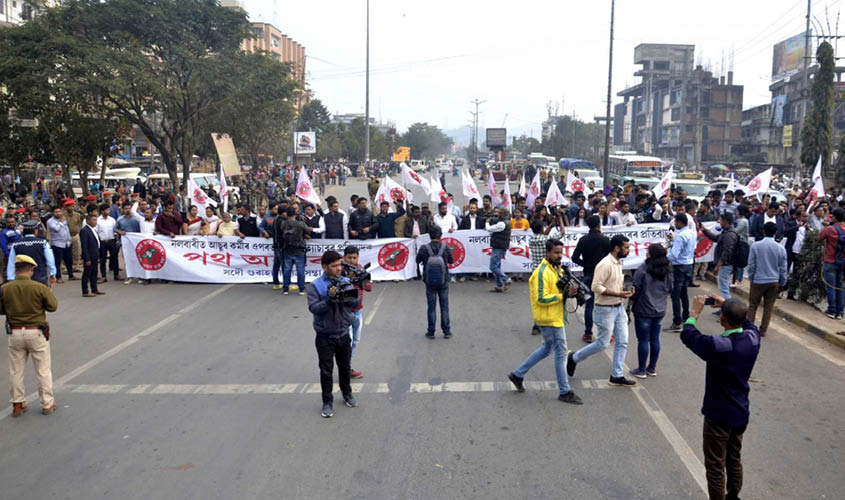According to sources, there will be some special provisions for three Northeast states with ILP system.
NEW DELHI: Though the Citizenship Amendment Bill is drawing criticism from several students’ bodies and civil society organisations in the northeast, it is not going to impact the Bharatiya Janata Party’s electoral and political prospects in the region, as the Centre may include some special provisions in the bill, sources said. After leaders of many regional parties across several northeast states, who are part of the BJP’s North-East Democratic Alliance (NEDA), expressed their reservations to the Bill, sources told The Sunday Guardian that the Centre is considering to include some special provisions for some northeast states which have the Inner Line Permit (ILP) system.
The ILP is an official travel document issued by the Government of India to allow inward travel of an Indian citizen into a protected area in some states for a limited period. It is obligatory for Indian citizens from outside those states to obtain a permit for entering into the protected state. Of the northeast states, three states—Nagaland, Mizoram and Arunachal Pradesh—have the ILP system. The states not having the ILP system are Assam, Manipur, Meghalaya, and Tripura. The special provisions are being considered for the three states which have the ILP system, sources said.
According to most northeast political leaders, the proposed Citizenship Amendment Bill—which seeks to grant citizenship to non-Muslim refugees such as Hindus, Jains, Christians, Sikhs, Buddhist and Parsis from Bangladesh, Pakistan and Afghanistan—will encourage illegal infiltration which will pose a threat to the indigenous population of the region.
While students’ bodies and civil society organisations in Assam are protesting against the Bill, experts and political commentators believe that it is not going to impact on the prospects of the BJP and NEDA.
Bhaskar Papukan Gogoi, a political commentator and supporter of the BJP, told The Sunday Guardian: “The protest against the Bill is due to some rumours and misinformation being spread. It has never impacted the political prospects of the BJP in Assam. Despite protests against the Bill by political outfits, people of Assam have been voting for the BJP and BJP is winning every election in the state.”
Earlier in January, when the Bill was tabled in the Lok Sabha for the first time, the BJP’s key ally in Assam Asom Gana Parishad (AGP) had left the alliance with BJP in the wake of protest against the Bill.
However, this time, the AGP seems unprepared as Tularam Gogoi, a party leader, told The Sunday Guardian: “Before we came back into the alliance, the BJP leadership had promised us that only after proper consultation and consensus would the Bill be tabled in Parliament. But no such discussion has taken place so far.”
Though Asom Gana Parishad sources claimed that it has not changed its earlier stand of opposing the Bill, the political analysts believe that the party will not take any bold step such as withdrawing support from the BJP government in Assam. Similarly, Conrad Sangma’s National Peoples’ Party (NPP), which had earlier played a very active role in resisting the Bill in the Rajya Sabha by lobbying with parliamentarians, seems inactive this time. When The Sunday Guardian tried to contact the NPP representative on the matter, nobody responded.

